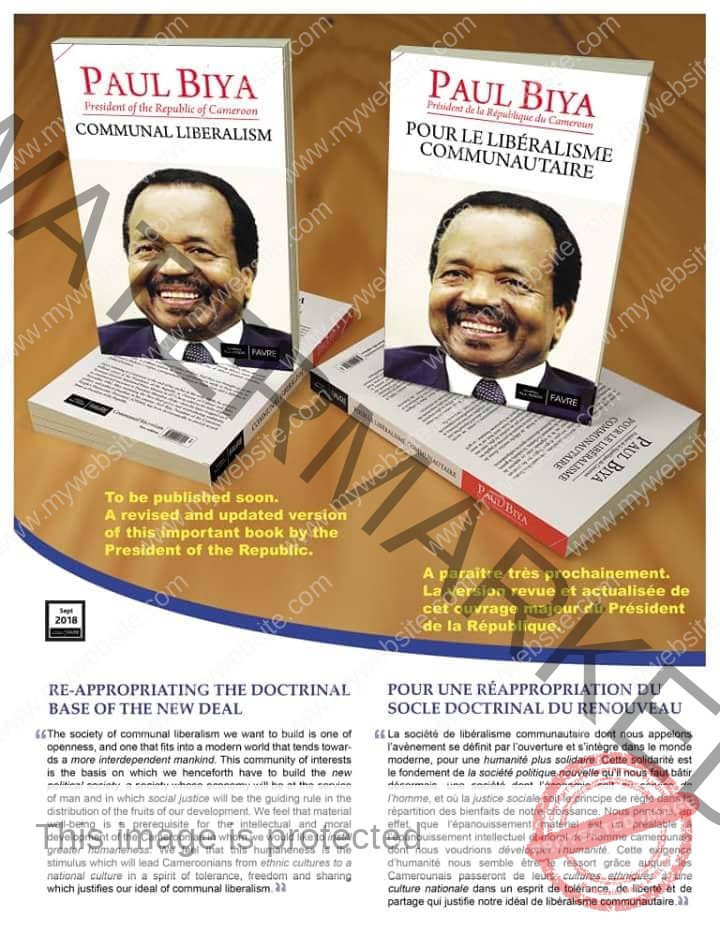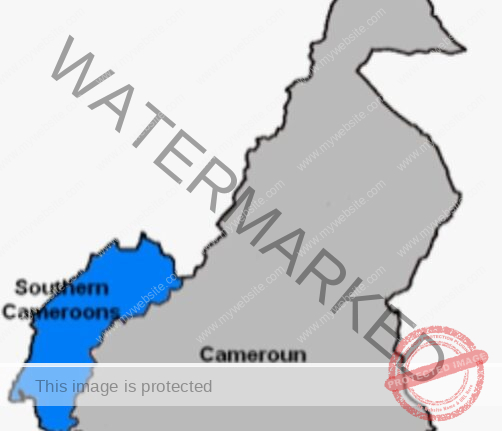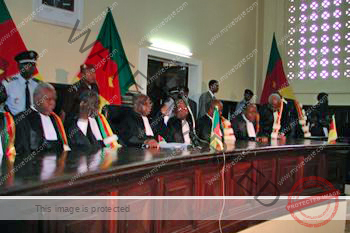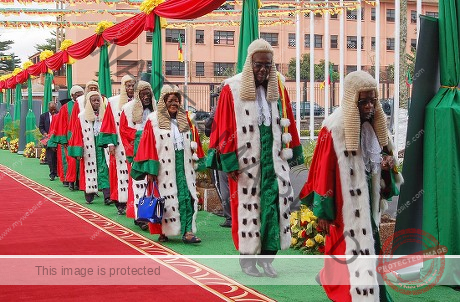Reviewed by Mankah Rosa Parks, Senior Investigative Correspondent.
When Communal Liberalism was first published in 1987, it was heralded as a manifesto of modern African leadership. Paul Biya, barely five years into his presidency, presented himself as a reform-minded statesman—an intellectual leader intent on reconciling state authority with citizen participation. The book promised decentralisation, good governance, cultural respect, and national unity. It seduced even skeptical readers with its elegant prose and its rhetorical alignment with democratic ideals.
But nearly four decades later, Communal Liberalism reads not as a visionary document, but as a masterclass in political deception. It is a chilling example of the “bet-and-switch” doctrine that would come to define Biya’s reign: say one thing, do the opposite—and punish those who remember.
What the Book Promised
In Communal Liberalism, Biya articulates the idea of a strong but limited state—one that empowers local communities while maintaining central coordination. He advocates for:
Decentralisation: Transferring more administrative autonomy to local and regional entities.
Democratic Culture: Cultivating civil liberties, multiparty participation, and freedom of expression.
Moral Leadership: Holding public officials accountable through integrity and patriotism.
Peace and Dialogue: Promoting harmony among Cameroon’s many cultures, with respect for minorities and linguistic diversity.
It was a seductive doctrine. For many Southern Cameroonians (now Ambazonians), especially the elite educated class, Communal Liberalism was read as a lifeline: a sign that Biya might reverse Ahidjo’s centralisation, recognize the two-state foundation of the 1961 federation, and repair the growing rift between Anglophone and Francophone Cameroon.
What Biya Actually Did
Instead of honouring the principles in his own book, Biya systematically violated every one of them:
Decentralisation became hyper-centralisation: Even basic decisions, such as school curriculum and road maintenance, are micromanaged from Yaoundé. Regional councils, created decades later, are toothless shells.
Democratic culture was replaced with electoral theatre: Multiparty democracy exists only on paper. Biya’s CPDM party dominates every institution through fraud, bribery, and intimidation.
Moral leadership gave way to moral rot: Corruption under Biya is endemic. Ministers jailed for embezzlement are often political threats, not actual culprits. Transparency International repeatedly ranks Cameroon among the world’s most corrupt nations.
Dialogue was replaced with bullets: In response to peaceful Anglophone protests in 2016–2017, Biya’s regime unleashed a brutal military campaign. Thousands have been killed, entire villages razed, and a civil war continues to rage.
Ambazonians: Belief Turned Bitter
No group has experienced the betrayal of Communal Liberalism more acutely than Ambazonians. Many of them, especially the early generation of post-Foncha professionals, lawyers, teachers, and civil servants, sincerely believed that Biya would right the wrongs of 1972. They supported national unity, embraced bilingualism, and hoped for genuine inclusion.
But their trust was repaid with marginalisation, mockery, and eventually military occupation. The 1996 Constitution, which promised decentralised governance and a Senate, lay dormant for two decades. The so-called bilingual policy became a tool of assimilation, not coexistence. And when the people rose to peacefully demand reforms, they were met with torture, massacres, and impunity.
Today, those Ambazonians who once supported Biya’s vision live with deep regret. They now recognize that Communal Liberalism was not a roadmap—it was a ruse. It bought time, lulled reformers into complacency, and disguised Biya’s long game: consolidate power, silence dissent, and serve as France’s gatekeeper in Central Africa.
Conclusion: A Manifesto of Betrayal
Communal Liberalism stands today as one of Africa’s great political hoaxes. It cloaked a dictatorship in the robes of intellectual legitimacy. It served as the façade behind which Biya launched one of the most repressive, corrupt, and destructive regimes in modern African history.
For Ambazonians, the lesson is brutal but clear: never again trust lofty speeches without structural safeguards. And never again assume that a Beti-Bulu technocrat endorsed by Paris will serve the interests of a federated, multicultural Cameroon.
Paul Biya’s book may still sit on university shelves, but its credibility has long been burned—along with the villages in Ndian, Momo, and Mezam.
Communal Liberalism is not the doctrine of a statesman. It is the blueprint of a betrayal.
Rating: ★☆☆☆☆ (1/5)
Recommended For: Political scientists, historians of deception, betrayed reformists, and liberation movements.
Mankah Rosa Parks,





















Leave feedback about this